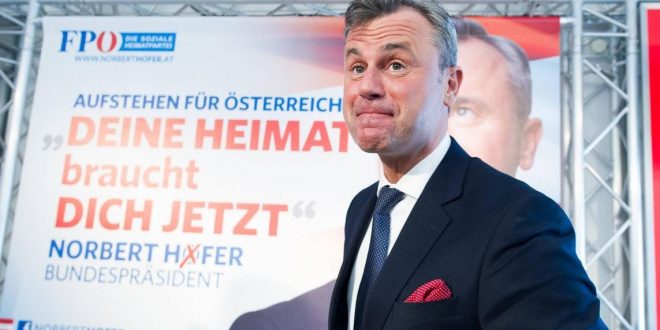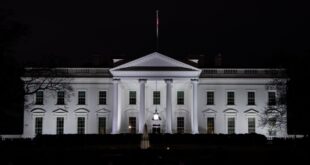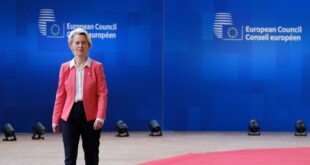This Sunday, 4 December, the second round of the presidential elections will take place in Austria. The elections are crucial to how the situation will develop not only in the central European country, but the whole of Europe. For the first time in the history of the European Union, a member of a party that Brussels regards as nationalistic and ultra-right wing could come to power in an EU member country. We are referring to Norbert Hofer from the Freedom Party of Austria.
The majority of public opinion polls in Austria give Norbert Hofer a lead of between 2 and 4 percentage points over his rival, Alexander van der Bellen. The latter, although officially put forward by the Green party, enjoys the support of the political elite that has ruled Austria since the end of the Second World War. The defeat of candidates from traditional parties during the first round in the spring of this year came as a shock to Brussels, and EU leaders, together with the Austrian establishment, worked out an emergency scenario to safeguard their interests by promoting the election of ‘technical’ president Alexander van der Bellen as the next president of Austria.
As the experience of the recent elections in the US, Bulgaria and Moldova shows, however, as well as the UK’s EU membership referendum, previous scenarios and globalists’ techniques have increasingly started to fail. Now, a win for the Freedom Party of Austria’s candidate in the Austrian presidential elections, which seemed impossible just a couple of years ago, could be a reality.
And although under the Austrian constitution the main levers of domestic and foreign policy are not controlled by the president, but are in the hands of the cabinet, the significance of the changing mood in the country should not in any way be underestimated. It is one of the pillars of European integration and a country whose opinion is listened to in vast areas of Central and Eastern Europe. There is good reason why regional mass media is already predicting significant changes in the entire system of power relations in Europe should Norbert Hofer win.
The Czech publication Aktualne.cz, for example, suggests that the enterprising and dynamic Hofer might, thinking back to Austro-Hungary, make Austria a member of the Visegrad Group, which, at present, consists of Poland, Hungary, the Czech Republic and Slovakia. And bearing in mind that these countries currently oppose Brussels to some extent on certain issues, one can expect that this opposition will intensify in Central and Eastern Europe. In such a case, the Visegrad Group will become «another tool for weakening the European Union», believes the Czech publication.
The possibility of some kind of alliance between Norbert Hofer and the leaders of those Western European countries currently preparing for their own elections, particularly the Party for Freedom’s Geert Wilders in the Netherlands and the Front National’s Marine Le Pen in France, should also not be underestimated. It is being predicted in France that Marine Le Pen has virtually guaranteed herself a place in the second round, which is set to take place in May 2017.
The crisis of the existing political model in Europe, based on the monopoly of the old ruling elite, where the name and programme of the ruling parties are not particularly important, is the main feature of the processes taking place in Europe today. The ‘non-system’ politicians and parties are coming to the fore more and more determinedly.
At the same time, the political problems in some EU member countries are in addition to the financial and economic crisis that is still plaguing Europe and the problems related to the UK’s forthcoming exit. The latter could, in turn, become a catalyst for the EU’s disintegration.
If these trends are projected onto the Balkans, where the divide between the traditional elite and public attitudes is historically even greater than in Austria or Hungary, then the expected arrival of hundreds of thousands of new refugees into the Balkans from Turkey next year will be capable of laying the existing political and government models to rest once and for all. And then for many Balkan states, a return to the days of the Austro-Hungarian Empire and a «concert of great powers» may not seem like the worst option.
Pyotr Iskenderov
Originally appeared at Strategic Culture Foundation
 Geostrategic Media Political Commentary, Analysis, Security, Defense
Geostrategic Media Political Commentary, Analysis, Security, Defense





